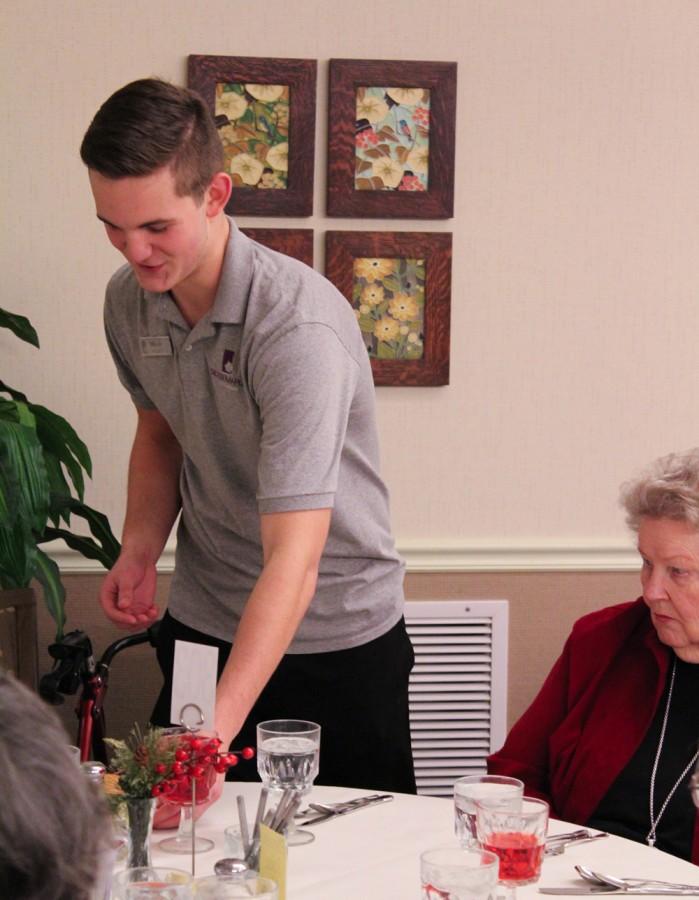Minimum wage for maximum dreams
Paying for college on your own dime
Just over $7 an hour and seven days a week may be the new social connection. For seniors, college is coming quicker than ever before, and for some, parents and financial aid won’t fill the financial situation all students are facing. That means 30 hours a week and $8.15 an hour is their financial focus for college.
The U.S Department of Labor’s website reports that Michigan’s minimum wage is currently set at $8.15 an hour if an employee is over 18 and works at least 40 hours a week, otherwise it reverts to the federal minimum wage at $7.25. Part-time refers to anyone commonly working less than 30 hours a week. However, what most students don’t realize is that any employee who works more than 28 hours a week has to be paid benefits, which means many students won’t even make it to 30 hours; therefore, a student would most likely be considered part time.
Let’s do the math: When multiplying minimum wage by 30 hours a week, the paycheck would equal $217.50 after taxes. The Center for Poverty Research reports that the average full-time minimum wage worker makes an annual salary of $15,080. Divide that by half, and a person’s part-time annual salary is $7,540. According to College View, Lansing Community College’s (LCC) average tuition cost for the 2013-2014 term year was $5,210.

Seniors Micah Rickerd and Madeline Battle work at Silver Maples Retirement community because of the better working conditions, “I’m a waiter for the elderly. Physically, it’s better than working at a fast food restaurant, and I get paid more,” Rickerd said.
Rickerd makes money to pay for his current expenses, such as gas, and tries to save for college with the money left over.
Not only does part-time work give a low financial threshold, but going to classes and hurrying to work afterward may not be a breeze either.
Stockbridge 2014 alumni Lauren Vanhevele works as a student aid at an extension center of LCC in Howell to help pay off some of her bills.
“I have anxiety, so it’s very stressful,” Vanhevele said.
According to Stockbridge High School’s college adviser Island Ellerby’s data tracker, at least 31 seniors are planning to attend LCC in the fall of 2016, and at least nine have applied to Washtenaw Community College. That means at least 40 students from the class of 2016 have to find a way to pay for their schooling through either their parents, the Free Application for Federal Student Aid (FAFSA), scholarships or by themselves.
“I want to go to Western Michigan University,” senior Micah Rickerd said. “I plan on paying for some of it, but I’m also trying to rely on scholarships as well as my parents. I think it’s absolutely impossible to pay for it all. It might be if I had a lot of time to save that money, but with the way life works it’s too much. There’s just no way.”

Kaylee is an Editor-in-Chief on staff. She's in 12th grade and in her spare time she likes spending time with her dog, long walks on the beach, and drives...

Hannah is a senior and is the Photo Editor on staff. In her free time she likes to sleep, eat, participate in track and field, and dance.



